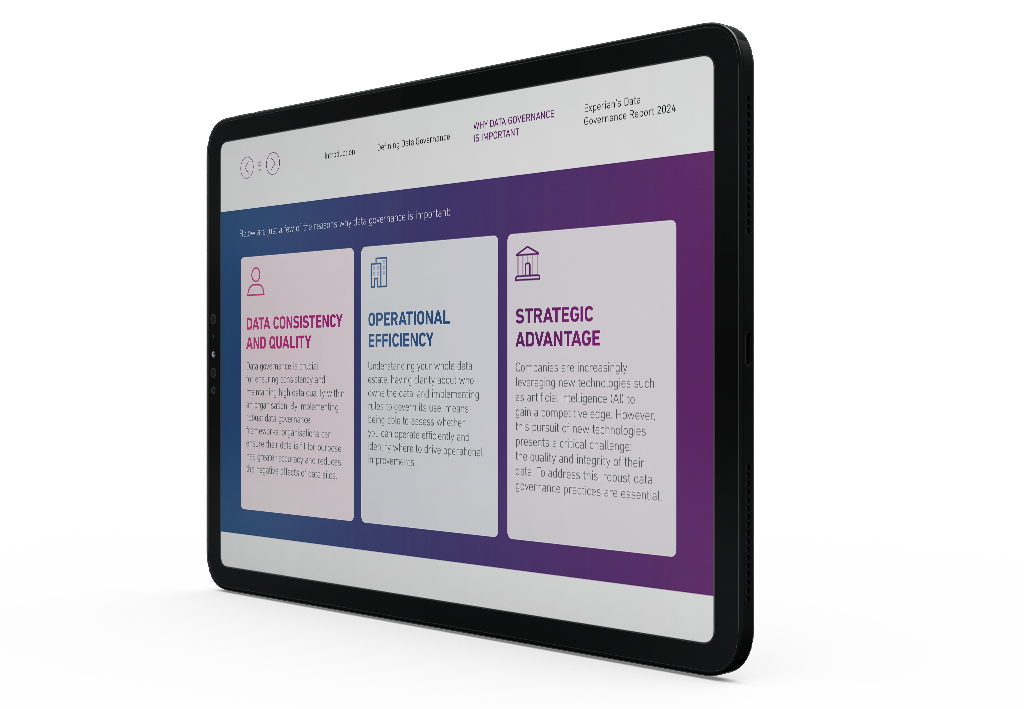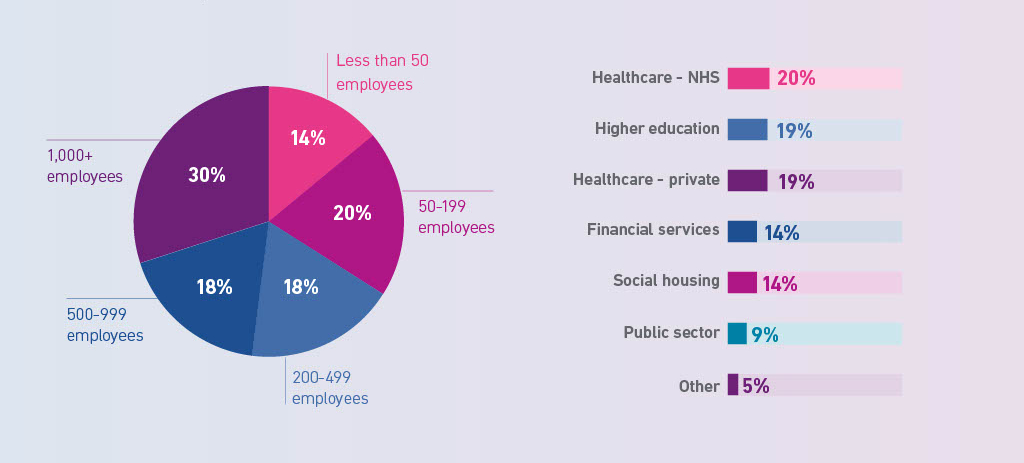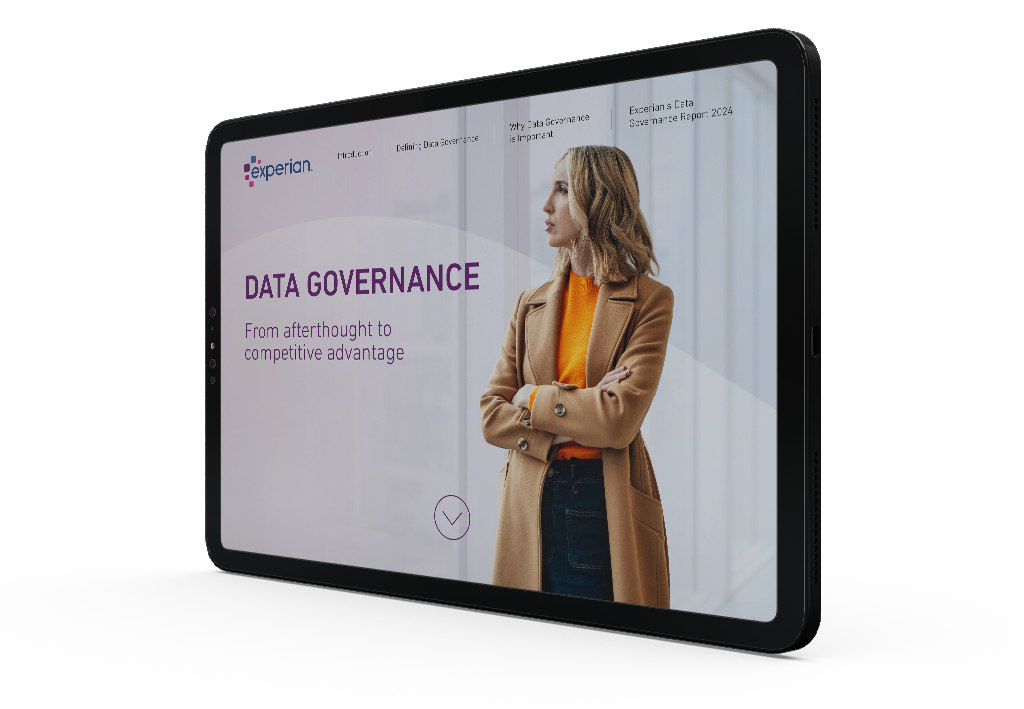Defining data governance
Data governance is best defined as the comprehensive management of an organisation’s data availability, usability, integrity, and security. Encompassing the policies that ensure data is managed effectively and responsibly. Data governance allows organisations to define data-related roles, set data quality standards, and implement mechanisms for data stewardship.
In April 2024 we conducted over 250 interviews with data experts across the UK&I to find out what businesses really thought of data governance.
Why data governance is important
Effective data governance ensures that organisations can rely on high-quality data to make informed decisions and comply with stringent regulatory requirements.
It provides a systematic, organised and auditable approach to understanding data, identifying data problems, and prioritising data issues. And it helps businesses survey, monitor and understand their data to deliver effective data management and control.
Data consistency and quality
By implementing robust data governance frameworks, organisations can ensure their data is fit for purpose, has greater accuracy and reduces the negative affects of data silos.
Operational efficiency
Understanding your whole data estate, having clarity about who owns the data, and implementing rules to govern its use, means being able to assess whether you can operate efficiently and identify where to drive operational improvements.
Strategic advantage
This pursuit of new technologies, such as AI, presents a critical challenge: the quality and integrity of their data. To address this, robust data governance practices are essential.
In this report we cover:

The state of data governance
What organisations currently consider to be the primary purpose of their data governance activities.
The cost of poor data governance
What impact poor data governance has had on businesses.
Investment in data governance
What the compelling benefits with investing in data governance have been.
The role data governance plays in AI
How data governance can impact businesses who utilise AI.
A sneak peek into:
Data governance report 2024
In April 2024 we conducted over 250 interviews with data governance decision makers and influencers in UK and Ireland businesses across a range of sectors where data governance is a priority.
We commissioned this research to find out what businesses really thought of data governance and to understand how we could help them, and their customers. We asked a range of questions including how data governance is viewed within the business, how much they are looking to invest, and what are core barriers to good data governance. We also asked how future technology such as AI will impact how they move forward.
Based on our findings we’ve split the report into four sections:
- The state of data governance
- The cost of poor data governance
- Investment in data governance
- The role data governance plays in AI

Breakdown of sample
1. State of data governance
We found the purpose of data governance ranges from a compliance requirement to an operational necessity and, less commonly, a core strategic imperative.
Most (78%) currently have a senior executive who oversees their data governance programme and 69% have a specific data governance team. Over half the organisations we spoke to had other representatives from business operations or a steering committee involved in data governance.
Did you enjoy the read?
Download the full report
Data governance has become an essential topic for executives and industry leaders. But what exactly is data governance and why is it so important? Download our report to find out more.









